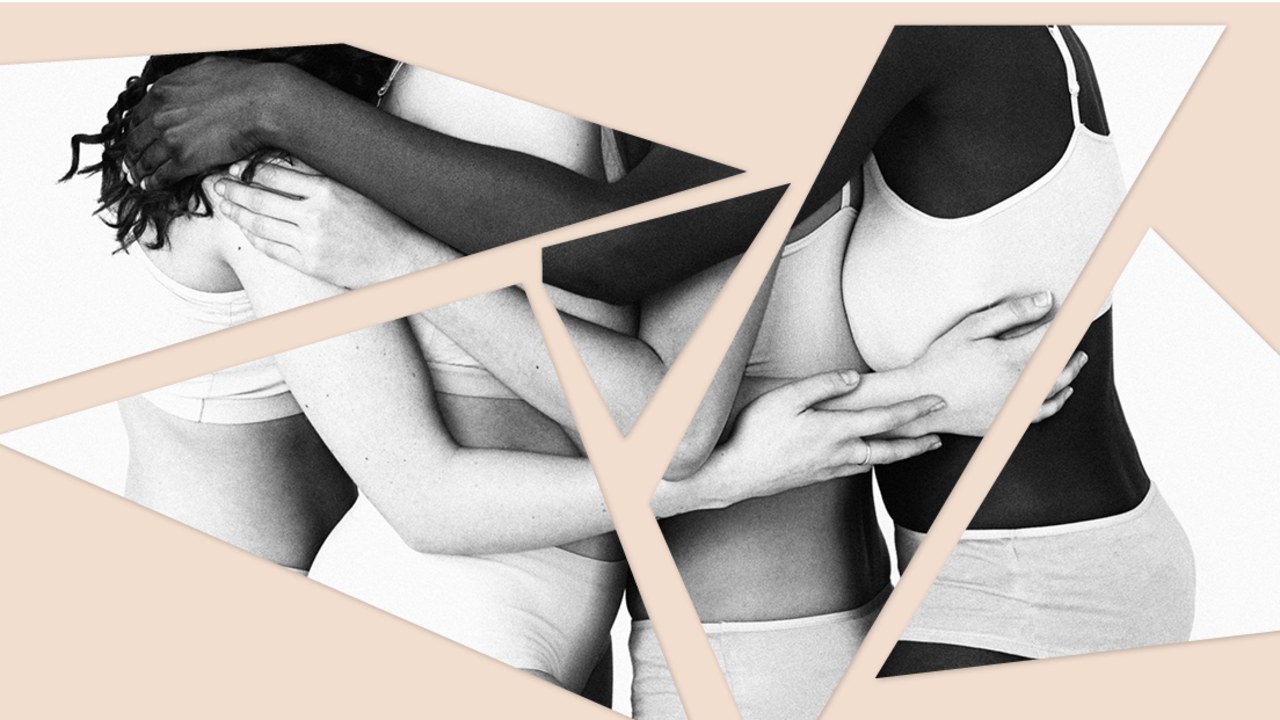Is it Time to Call B.S. on Body Positivity?

Because I’m a trainer and a gym owner, January means one thing: The floodgates are open, and resolution-fueled gym-goers are pouring in. As for many gyms around the country, January is our busiest month—new clients sign up in droves, classes are full, and our personal trainers are all squeezing in workouts before they’ve even had their coffee. I should be excited for the onslaught of new clients and the re-upped commitment from old ones. But I’m not—I dread resolution season.
It’s not because I don’t love the work. I really do love working with people to help them reach their goals. But I hate how this time of year always seems to reinforce and intensify the horrible messages we get about our bodies. Every January, people pour into my gym rattling off a laundry list of things they want to change and reasons they hate their bodies. It’s soul crushing.
I used to greet their gripes with my perky refrain of body positivity. “Your body is awesome,” I would tell them, in as many permutations as I could muster. But the more I preached self-love, the more the message felt problematic.
Body positivity sounds like such a nice idea, until you realize it’s not always attainable. It promises that posting a picture of your rolls on Instagram will suddenly make you fall in love with them. But throwing away a lifetime of body hang-ups is way more complicated than adopting a few “empowering” hashtags. Believing we “should” love everything about our bodies makes us feel like failures when we don’t. Sometimes it seems that body positivity doesn’t leave any room for insecurities and frustrations, which every single one of us struggles with.
I call bullshit.
I started to notice how harmful the one-dimensional message to love your body can be when I was talking to my clients. When clients confided in me about their body insecurities, I responded by telling them that they should love their body just the way it is. But I was telling them that their experience—the insecurities, the doubt, the shame—wasn’t valid. I was gaslighting them with praise.
Body positivity can feel like pressure.
Don’t get me wrong, I love that the body-positivity movement has helped us celebrate our bodies, no matter the shape or size. It’s helped us address toxic messages about bikini bodies and messed-up ideals of perfection that have been lurking in our cultural conversation for decades. It’s been the catalyst to change the narrative—and push brands to keep up. But the pull between the “love yourself no matter what” message and the realities of what it’s like to actually do that creates a tension that I see every day. People feel guilty for not loving their body.
“Body positivity can feel like pressure,” says Claire Mysko, CEO of the National Eating Disorder Association. “The reality is that we live in a culture that makes it pretty tough to feel positive about our bodies every day.” It’s a worthy goal to work toward, but when we start blaming ourselves for not loving every single thing about our bodies all the time, it can make us feel even worse. “That’s when ‘body positivity’ can be a problematic term,” Mysko says. It can create one more way for you to feel bad about yourself. So, rather than preach body positivity, I’m making a shift toward working on body acceptance in 2019.
You don’t have to want to post your body hang-ups on Instagram to prove that you love yourself.
“Acceptance is about making peace with our bodies,” Mysko says. “It’s about striving to treat our bodies with respect—wherever we are in that journey.” In other words, you don’t have to feel positive about all aspects of your body all the time. We all have days when we look in the mirror and just aren’t feelin’ it. That’s OK. That’s normal. That does not make you a failure.
The key to body acceptance is, rather than demonize your jiggly belly or cellulite-sprinkled thighs, to work toward accepting them. You don’t have to want to post them on Instagram to prove that you love yourself. Your body hang-ups also don’t have to be “wrong” or “bad”—they’re simply a part of the way you’re built.
As a trainer, I’ve found that the first step in making body acceptance a reality is shifting your focus from how your body looks to what your body can do. People come to me all the time, saying they want to lose 20 pounds or fit into a size 6 again. But my response is always the same: I want people to stop thinking about appearance as a metric to judge themselves. What your body looks like shouldn’t dictate how much you love it.
I’ve come to believe it’s not the power of positive thinking that will erase the bad messages we’ve internalized; it’s the act of radical acceptance. There’s no hashtag or trend that can get you there. We need empowered communities, built on acceptance and supporting incremental change—that’s what we should resolve to strive for this year. The rest of it is just B.S.
Alyssa Royse is a certified trainer and gym owner in Seattle.
Photo by Getty Images
